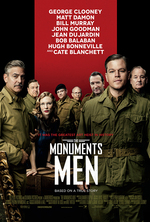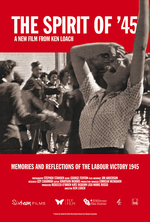Film Screening 17th May, 2014

The Monuments Men
7:00 PM, 17th May, 2014
- M
- 118 mins
- 2014
- George Clooney
- George Clooney, Grant Heslov
- George Clooney, Matt Damon, Bill Murray, Cate Blanchett
As the Nazis cut across Europe, they also took possession of most of Europe’s significant artworks. And as the war drew to a close, there was a significant threat that the Nazis may destroy the work they’d captured, or that the work may become collateral damage. A special unit was created to look after these works – made up largely of art historians, not normally considered the most action-packed and heroic of professions – often moving ahead of the front-lines of battle to safeguard the artwork.
Based on a true story, also called ‘the greatest treasure hunt in history’, it saw over five million cultural assets recovered, identified and returned to their country of origin.
George Clooney’s film walks a careful line between light comedy (as the older and less physically capable art historians find themselves rushed through basic training) and deeper drama as they risk their lives repeatedly for the protection of cultural treasures. With an outstanding cast including Cate Blanchett and Matt Damon, a script by Clooney and long time-collaborator Grant Heslov, and a reasonable amount of wartime action, it’s a mix of high-culture and high-action that should keep you entertained and educated in about equal measure.
Simon Tolhurst

The Spirit of ’45
9:08 PM, 17th May, 2014
- PG
- 99 mins
- 2013
- Ken Loach
- Ken Loach
ANU Film Group has strived for almost 50 years to bring the best of film to Canberra. The record shows that we have succeeded. Documentaries are an important part of the mix. This semester we are showing four excellent ones and this could be the best.
Many people will be familiar with British director Ken Loach. His well-earned reputation for gritty, passionate dramas taking the side of the less privileged members of society started with his powerful 1967 film Poor Cow. You may have seen his last film The Angels’ Share in Semester 1, 2013.
This is a look at England after World War 2, how the British Bulldog spirit and community goodwill helped the country to rebuild and recover. There was a powerful united front determined to co-operate and avoid some of the pre-war poverty. Loach moves forward to compare this with the Thatcher era which he asserts was more combative and more selfish. Don’t expect a balanced comparison – Loach has a definite point of view and he puts it strongly. He makes some important points about societies and the role of governments.
If you would like to see more documentaries in our future schedules please support our offerings this semester. We will be monitoring attendances.
Brett Yeats